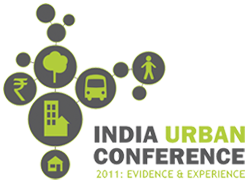Mysore
Over 66 thousand habitations arsenic hit: Centre
Posted on 13 Feb, 2017 09:08 PMArsenic present in drinking water at many habitations: Centre

Ganga clean-up programme has failed: IIT consortium
Posted on 04 Dec, 2016 08:31 PMGanga clean-up fails, thanks to multiple authorities and no monitoring

NGT raps Delhi government over air pollution
Posted on 14 Nov, 2016 05:59 AMEnvironment minister calls Delhi pollution 'emergency situation'

Water not for profit
Posted on 16 Oct, 2016 08:58 PMIn August 2016, the Karnataka government gave Abu Dhabi-based businessman B.R. Shetty permission to privatise the iconic Jog Falls to make it a perennial waterfall and to develop it into a tourism hotspot.

Water privatisation, a failed model?
Posted on 05 Apr, 2014 03:12 PMSince water reforms were introduced in India in the 1990s, water privatisation has been propagated as a panacea to the sector's problems.

Rurals move away from agriculture: Assocham
Posted on 02 Feb, 2014 10:08 PM'Rural job profile observes a significant change'

Opening for Programme Associate ( Western Ghats), Nature Conservation Foundation, Mysore
Posted on 04 Jul, 2013 11:00 AMOffered by
Nature Conservation Foundation
About the vacancy
The candidate shall

Moving from paddy and sugarcane to less water-intensive crops such as oilseeds, pulses and millets can help resolve the Cauvery water dispute
Posted on 14 Jan, 2013 12:10 AMWhat happens when two or more states are dependent on same water resource for agricultural purposes ? Do the states compete for the resource or are their needs sufficiently different from each other? What are the consequences of the competition for this precious resource?
This article sheds light on the dispute between Karnataka and Tamil Nadu, for sharing Cauvery river water. The ongoing tussle between the two states has seen a lot of unrest amongst farmers in form of dharnas, protests, rail roko and non-cooperation by citizens, and disagreement with the agreements made by their respective governments and unending negotiations by governments involved, to come to a mutually agreeable decision.
India Urban Conference 2011, November 17 – 20, 2011, Mysore
Posted on 12 Nov, 2011 10:00 AMOrganizers: Janaagraha, IIHS, Yale University
Venue: Infosys Training Centre, Mysore

San-kranti Student Challenge invites students to participate in transforming urban India, Mysore - Apply by 15 September, 2011
Posted on 25 Jul, 2011 03:01 PMThe San-kranti Student Challenge concerns all of us. India’s rapid urbanisation has resulted in significant challenges as well as a set of valuable opportunities – there are few certain answers before any of us. Our urban growth could help us alleviate poverty and move towards a more sustainable and equitable future. It could also overwhelm our cities and exacerbate inequality. We stand at the cross-roads.